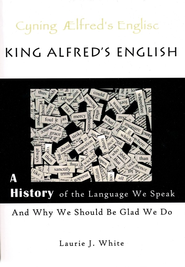Grading your middle school or high school student’s essay can be difficult. Where do you begin? What criteria do you use? How do you ask intelligent questions that will really get to the heart of the essay?
In this informative video series, I show you specifically what to look for when grading those homeschool essays. Grading Essays Made Easy #1 teaches you six key questions to ask of your student’s essay, beginning with the most obvious and proceeding to the least obvious.
For a free grading grid for middle school essays, click here. >>
For a free grading grid for high school essays, click here. >>
Point orders
The question in Grading Essays Made Easy #2 is this: Are the essay’s points arranged in a logical and effective order?
In this video, I’ll show you six different point orders your student can use when organizing his or her essays. They’re easy. They’re fun. And they’re all about trash.





 Ever wonder why some writing is so confusing? You read it once. It makes no sense. You read it again and hope for the best.
Ever wonder why some writing is so confusing? You read it once. It makes no sense. You read it again and hope for the best.












